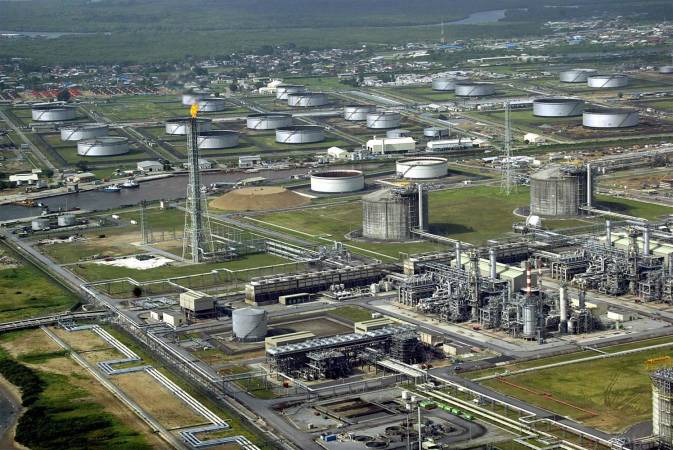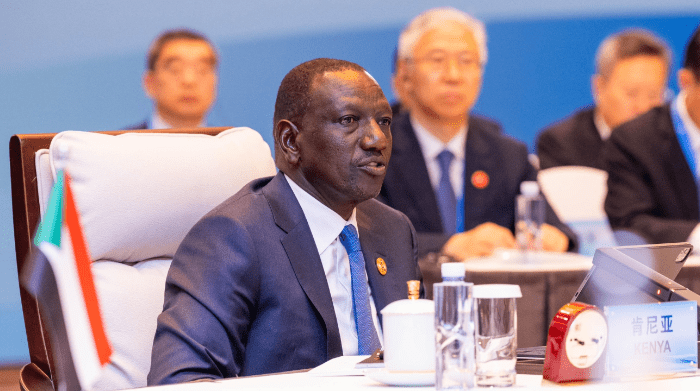Africa can get invaluable lessons from China on industrialisation

Due to its myriad economic challenges, it is tempting to write off Africa as an emerging or industrial giant. Africa imports much more than it produces, something that tilts its balance of trade disadvantageously. It is a vicious cycle that has stunted the continent’s growth.
One of the questions that puzzles economists both within and outside the continent is the reasons behind Africa’s underdevelopment amid trillions of dollars’ worth of resources. Some countries with meagre resources have a high Gross Domestic Product (GDP) compared to that of the resource rich continent simply because they are industrialized.
The conclusion is that there is something fundamentally wrong with the various approaches that Africa has implemented in its attempts at industrialization. Therefore, there needs to be a 360 degrees’ turnaround of the strategies the continent has adopted or followed for decades if it will hasten its status to a newly industrialized entity in the next couple of generations.
As part of the framework of the Second Industrial Development Decade for Africa from 1991 to 2000, the United Nations set 20 November as “Africa Industrialization Day”. The occasion is aimed at evaluating efforts that the continent is making towards industrialization, and what needs to be done to surmount the fundamental challenges that hinder this development path.
During Africa Industrialization Day 2020 whose theme was “Inclusive and sustainable industrialization in the AfCFTA era,” there was consensus that Africa’s current dependence on agriculture, oil, and minerals are an unsustainable pathway to industrialization, and advocated for manufacturing as the engine to development.
Industrialization is a theme that the African Continental Free Trade Area (AfCFTA) is giving top priority. The continental body sees value addition and intra-trade in a market of 1.3 billion people as the basic pathway to industrialization.
To record fast development like the so called Asian tigers it envies, Africa must be pragmatic and apply the virtue of small beginnings. The continent must now play deaf to high-blown economic models bandied by some international financial institutions but have not borne fruit after several decades of experimentation.
The continent should take advantage of close allies like China who have shown willingness to support the continent’s development agenda. Indeed, China has invaluable lessons for Africa, having risen by its bootstraps from a rugged country just a century ago to its current first among equals position as one of the top scientifically and technologically advanced nations in the world.

African countries can get inspiration from China’s case study in its meteoric rise particularly in the last 40 years after the declaration of its reform and opening up policy. Some experts have rightfully framed China’s industrial revolution as “perhaps one of the most important economic and geopolitical phenomena since the original Industrial Revolution 250 years ago.”
According to an article published on April 11, 2016 by Yi Wen, a former assistant vice president at the Federal Reserve Bank of St. Louis titled, “China’s Rapid Rise: From Backward Agrarian Society to Industrial Powerhouse in Just 35 Years”, China compressed several centuries of Western development into three decades.
The first phase from 1978 to 1988 featured the emergence of millions of collective small enterprises all over the country. The second phase from 1988 to 1998, termed as the first industrial revolution, entailed the mass production of labor-intensive consumer goods including textiles, furniture and toys using imported machinery, of which the country was the largest producer and exporter globally.
During the second industrial revolution starting from 1998, China mass produced the means of mass production in order to satisfy its expanding domestic market for intermediate goods. This also necessitated the construction of massive infrastructural projects and means of transport to help open up markets.
Such is the revolutionary feat that Africa must undergo if it is to radically transform itself socially and economically in modern times. For instance, it beats logic why the continent has failed to process much of its agricultural produce and prefers selling it as raw materials, and then import the same as expensive finished products. This can be said of other resources that the continent exports as raw materials in bulk.
Secondly, Africa has the requisite brains and labor to sustain a constant production process, and to keep innovating as well. One major advantage is that the continent does not have to re-invent the wheel. There are many prototypes in the industrialization value chain that can be simply deployed into the production process. Some of these technologies, like 3D printing, also have the advantage of economies of scale, short timelines and cost effectiveness.
Thirdly, Africa can attract foreign direct investment in sectors that are critical to its industrialization. This can operate along the built-operate-transfer model that is popular and successful in the infrastructural sector. For instance, instead of assembling knock-down kits, manufacturers of machineries from overseas can set up full plants in African countries that offer the best investment environment. With visionary and determined leadership, all these is possible.












